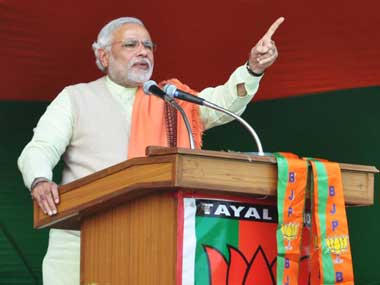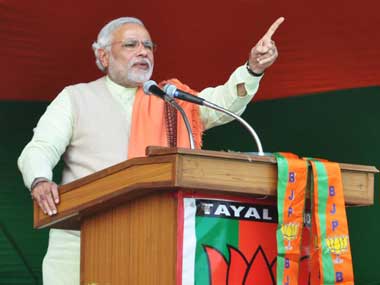Narendra Modi’s innumerable supporters have had time to exult over a lower court decision not to tamper with the clean chit given to him by the Special Investigation Team set up to probe the 2002 killings. He has even had time to claim that he ‘was shaken to the core’ at the time. His hypocrisy given the track record of his government during those days is no surprise. The court’s clean chit given the approach of the SIT to the question of administrative culpability is no surprise either. Even a cursory look at the report reveals what I had noted earlier, “If officers who in the immediate aftermath of Godhra held firm and ensured violence did not take place were transferred within the same month, the report claims these were routine administrative actions. If senior officers who acted in a manner the administration seems to have preferred—thus inviting reason for criticism of their handling of the violence—were rewarded with plum government posts or post-retirement benefits, the SIT sees this only as evidence of their capabilities. If officials of the Modi administration were caught on tape tutoring witnesses, the SIT casts suspicion on the intentions of the person who attempted the clandestine recording.’’ [caption id=“attachment_1313671” align=“alignleft” width=“380”]  Is Modi’s rise a collective ethical failure on part of the nation? AFP[/caption] The real surprise is that anyone should have expected a different outcome. The effrontery that allows Modi to survive in office is not unique to him, even though his would rank among the most serious acts of dereliction by a person holding public office in this country. At the very least his actions allowed mass murder to take place while he was chief minister. There is reason to believe that his administration actively colluded in the violence but the SIT has rather conveniently ensured that this aspect has been shelved for the time being. In a real sense the SIT report is in keeping with a long tradition of reports submitted with regards to the 1984 massacre of Sikhs which had similar aims when it came to protecting Rajiv Gandhi and the Congress. Even assuming an unbiased investigation, administrative accountability is difficult to establish under the law in India, as is evident from the fact that few if any politician has been held to account for the many bouts of religious violence that have plagued this country. This is a problem with our laws, not a clean chit for our politicians. But in our obsession with the law we have forgotten that our politicians must answer to certain standards of public propriety and ethical behavior irrespective of where the law stands. It is this idea that Atal Bihari Vajpayee had emphasized when he invoked ‘raj dharma’ while speaking of Gujarat in 2002, before he let expediency and the Sangh win him over. In a larger sense, well beyond the criminality of their actions, the failing that allowed Rajiv Gandhi or allows a Narendra Modi and an Akhilesh Yadav to survive in office despite their failure to do their duty when it mattered is a reflection of the kind of society we have become. The idea of a duty that we embody in our profession, whatever that profession may be, is lost to us. The idea of dharma invoked by Vajpayee is not an idea we can any longer make any sense of, unless the support for the Aam Aadmi Party in part embodies a desire for a more ethical order. In the media, despite the Radia Tapes, Vir Sanghvi continues to write on politics, Barkha Dutt continues to anchor on prime-time television. Nothing they did was criminal, or will ever be proved to be so. But should they continue to hold the offices they do in our profession? Certainly not. Kamal Nath has never been charged with murder for his role in the 1984 massacres, but should he have any right to public office? Again, emphatically no. The examples can be multiplied, but however minor or major the dereliction involved they point to the same end. The absence of such ethical standards is what allows Modi to continue in office while continuing to indulge in the manipulation of the truth about 2002. Do read his blog with some care again and look at the way in which the term `I’ is used – I was shaken to the core… I had to single-mindedly focus all the strength given to me by the almighty… I often recollected the wisdom in our scriptures… I had appealed to the people of Gujarat on the day of the Godhra train burning… I had repeatedly reiterated the same principles in my daily interactions with the media. There is not a single mention of the kind of words you would expect a committed administrator to use at a critical juncture. There is no sense of active involvement – I directed, I ordered, I held the officers to account – in his entire account. Reading the blog, if we were unaware of the actual events in the Gujarat of 2002, we would believe that Modi was not the chief minister, but a passive observer. The truth then is only one casualty in the hype that surrounds him. If today we are not marking a decade from the time Modi was removed from office, but are instead witnessing the prospect his becoming Prime Minister, it is only because he is the embodiment of our collective ethical failure.
The idea of a duty that we embody in our profession, whatever that profession may be, is lost to us.
Advertisement
End of Article


)
)
)
)
)
)
)
)
)



